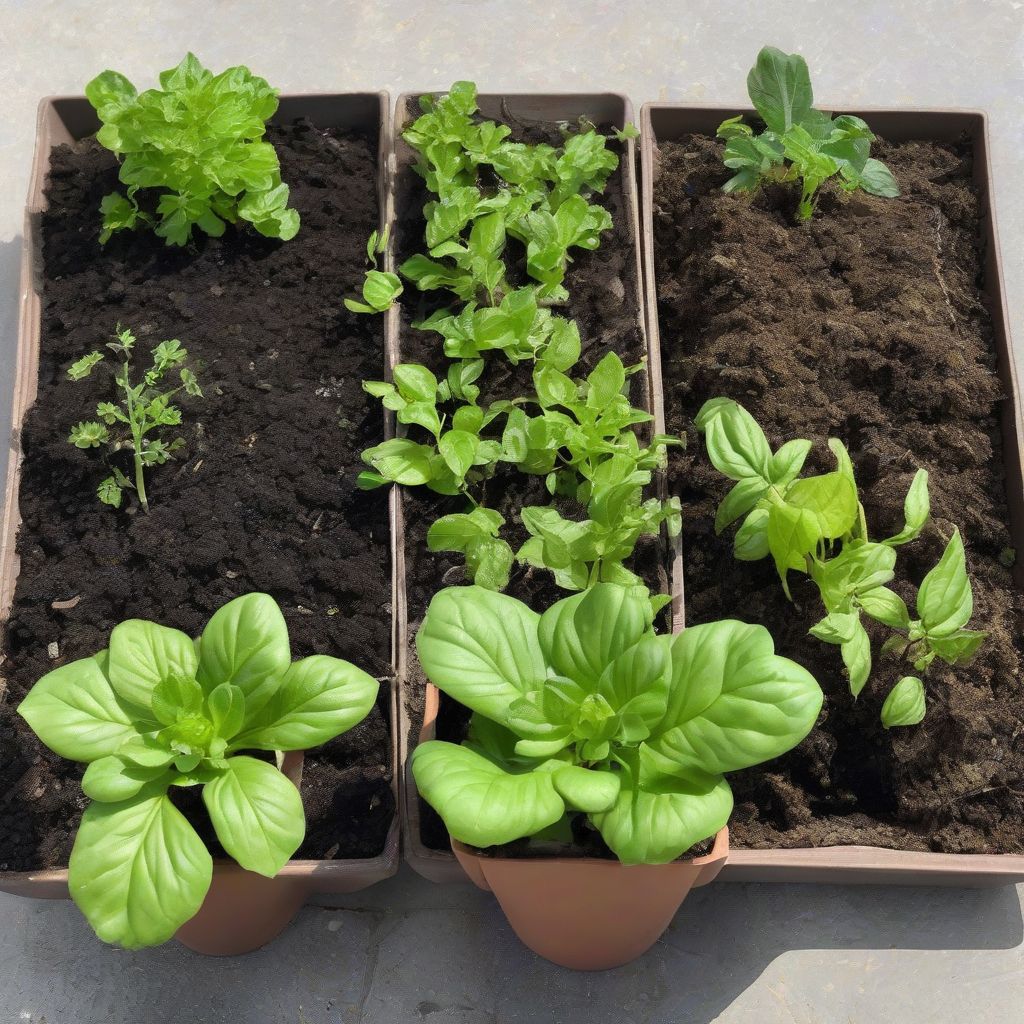Imagine sinking your hands into rich, dark soil, teeming with life. You plant a seed, nurture it, and watch in awe as it explodes with vibrant growth, producing bountiful fruits and flowers. This, my friends, is the magic of compost! As a nutritionist and meal prep coach, I’m passionate about healthy eating, and it all starts with nourishing the source: our soil. Today, let’s delve into the incredible impact compost has on plant growth and yield, unlocking the secrets to a thriving garden.
Understanding the Powerhouse: What Makes Compost a Game-Changer?
Compost, often called “black gold” by gardeners, is decomposed organic matter. Think kitchen scraps, fallen leaves, and grass clippings, transformed by the magic of microorganisms into a nutrient-rich substance. But how does this transformation translate into thriving plants? Let’s break it down:
1. Nutrient Powerhouse: Feeding Your Plants the Good Stuff
Just like we need a balanced diet, plants crave a variety of nutrients for optimal growth. Compost delivers! It’s a treasure trove of essential nutrients like nitrogen, phosphorus, and potassium, readily available for your plants to absorb.
2. Soil Superhero: Improving Soil Structure and Drainage
Imagine trying to grow a plant in compacted, clay-like soil. Tough, right? Compost acts like a soil superhero, improving its structure. It loosens heavy clay soils and helps sandy soils retain moisture, creating the perfect environment for roots to flourish.
3. Water Champions: Enhancing Water Retention and Drainage
Have you ever overwatered your plants, leading to root rot? Compost can help! Its ability to improve soil structure leads to better water retention, preventing drought stress. At the same time, it promotes proper drainage, keeping those precious roots from drowning.
4. The Microbe Connection: Boosting Beneficial Soil Life
Beneath the surface, a hidden world teems with beneficial microbes. Compost introduces these tiny superheroes to your soil, boosting microbial activity. These microbes break down organic matter, releasing nutrients for plant uptake and further enhancing soil health.
 Compost Impact on Plant Growth
Compost Impact on Plant Growth
Reaping the Rewards: How Compost Impacts Plant Growth and Yield
Now that we understand the “why,” let’s explore the “how.” Compost’s impact on plant growth and yield is remarkable:
1. Growth Spurt: Witnessing Faster, Healthier Plant Development
Imagine giving your plants a superfood smoothie every day! That’s what compost does. The readily available nutrients fuel faster growth, resulting in bigger, stronger plants.
2. Bountiful Harvests: Enjoying Increased Yields and Bigger Produce
Whether you’re growing tomatoes, zucchini, or beautiful flowers, compost can significantly increase your yield. Studies have shown that compost-enriched soil can lead to larger fruits, vegetables, and more abundant blooms.
3. Resilience Boost: Building Strong Plants That Can Handle Stress
Just like a healthy immune system helps us fight off illness, compost strengthens plants’ natural defenses. They become more resilient to pests, diseases, and even extreme weather conditions.
From Kitchen Scraps to Garden Gold: Simple Ways to Start Composting
Ready to harness the power of compost? It’s easier than you think!
- Start a compost bin: You can purchase a ready-made bin or create your own using simple materials like pallets.
- Add the right ingredients: A mix of “brown” materials (like leaves and twigs) and “green” materials (like kitchen scraps) is ideal for decomposition.
- Keep it moist: Think of a wrung-out sponge. That’s the perfect moisture level for your compost pile.
- Turn it regularly: Give your compost pile a mix every few weeks to provide oxygen and speed up decomposition.
The Verdict: Compost – A Gift That Keeps on Giving
Compost isn’t just about bigger vegetables or more beautiful flowers. It’s about nurturing the soil, the foundation of all life. It’s about closing the loop, turning waste into a valuable resource that benefits our plants, our environment, and ultimately, our health. So, let’s get composting and unlock the incredible potential of nature’s own fertilizer!
What are your experiences with compost? Share your gardening wins and challenges in the comments below!
[amazon bestseller=”composting”]
